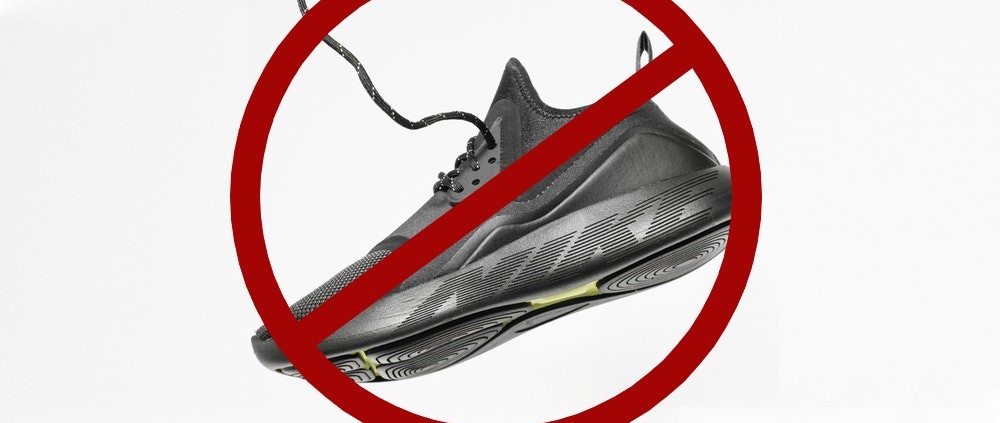The Business About Boycotts, Read Hearing, and the Greatest Show on Astroturf
Here’s What You Need To Know
Football is back, and that means more than simply trash talking friends’ fantasy football teams. Nike unveiled an ad campaign featuring former NFL player Colin Kaepernick, who has become a divisive figure after kneeling during the national anthem as a form of protest in 2016. The ad campaign sparked an uproar, including a call for a boycott on Nike products. While videos of people burning Nike shoes and cutting off the logo of socks have filled Twitter feeds and news channels, this issue extends beyond one particular company and issue, as there is a growing prevalence of corporate boycotts in the U.S. Here is what you need to know about the business of boycotts before you find your company on trial in the court of public opinion:
- How did we get here? As we have discussed in previous editions, frustrated with Washington politicians and the broken governing process, some companies have taken on the role of activists, taking political stances to sell their products. A recent CapX article applauded companies for being a moderating influence and pushing society forward “one pair of trainers at a time” in what it calls “woke capitalism,” but this type of activism exposes business interests to fraught political and reputational peril. Companies are facing pressures to engage in issues detached from their business and core values, which has led to boycotts from angry customers who hold opposing views. “The great age of boycotts” has arrived, enabled by social media and urging people to boycott companies such as Starbucks, Dick’s Sporting Goods, New Balance, and most recently, the New Yorker Festival.
- What Are The Threats Facing Companies? Boycotts themselves do not alienate customers and hurt a company’s bottom line. Rather, it is what led to the boycott in the first place – the company’s actions, statements, or decisions that offended its core customers and fell outside of what a key segment of the customer base believes or thinks. Nike’s market cap tanked $4 billion in one day following the launch of the Kaepernick ad campaign, and while some of their young, hip customers with disposable income may approve of the campaign, other customers who purchase Nike products were taken aback by the campaign because it did not match the values they thought they shared with Nike. For a boycott to cause lasting brand damage, the offending action needs to offend a meaningful number of people, and time will tell what the impact on Nike will be. Companies can also find themselves the target of wrath even for long-time business practices. California Democrats are attempting to spread a boycott of In-N-Out Burger over its donations to the California Republican Party, but it has backfired because the fast food company has a long history of donating to both Democratic and Republican organizations. Even so, whether purposefully taking on the role of activist or not, a company’s actions will reflect on them, and standard business practices are now vulnerable to political pressure from activists – meaning that firms need to be prepared with an effective response to ensure outrage does not spread and grow over time.
- How Can Companies Protect Their Reputations And Interests? Mixing business with politics is risky. Companies need to proactively determine how they will engage issues and have a plan in place for when they find themselves under attack. With today’s digitized activism, boycotts can go viral on social media in one day, such was the case with #BoycottNike. Described by The Wall Street Journal as “pseudo-boycotts,” today’s corporate boycotts are more about identity politics and posturing in the public arena than truly changing an opponent’s behavior, making it more important than ever for companies to identify and understand their customers, and proactively prepare for when they find themselves in a public affairs challenge. Because while financial impacts of such challenges may not last or turnoff core customers, wading into politicized issues changes the nature of the business landscape in which a company operates.
Corporate boycotts show no sign of letting up, and indeed, their prevalence has even raised the specter that there may be too many boycotts, as #BoycottBoycotts has become a popular hashtag. Regardless of industry, companies will need to adapt accordingly, or face the consequences of a highly-public crisis.
News You Can Use
A READ HEARING?
Subscribe to Receive Insights
"*" indicates required fields
Mercifully, the Senate Judiciary Committee’s hearing on Supreme Court Justice Nominee Judge Brett Kavanaugh, and all of the corresponding “chaos,” “crazy,” and characters, has concluded. One main narrative pushed by opponents of the nomination demonstrates a skill in which Delve analysts are well-trained: the importance of finding actionable insights that matter on an issue.
In requesting withheld documents related to then-Staff Secretary Kavanaugh’s work in The Bush White House, Democrats would have received potentially millions of pages of records that would have likely resulted in a dump of nearly all the paperwork that circulated through The White House during his tenure, providing little substance, value, and insight into whether or not the nominee is qualified to sit on the Supreme Court.
Our take? These documents and corresponding narrative were less a relevant, substantive issue and more a rhetorical red herring to galvanize support of political bases in the public arena, posture for 2020 nomination contests, and deploy last-ditch messaging in the event it catches on and Kavanaugh’s likely nomination could be derailed.
TOO BIG TO KNOW
Silicon Valley and large mergers and acquisitions have captured the public bandwidth regarding monopolies, yet the “biggest antitrust story you’ve never heard” may actually focus on institutional investors. Firms such as BlackRock, Vanguard, and State Street own“more than any other single shareholder in 40% of the public companies in the U.S.,” meaning they are often the most influential shareholders in the country’s largest companies, which are often supposed to be in competition with each other.
Existing antitrust statutes are not easily applicable to this so-called “horizontal shareholding” because evidence connecting shareholder activism with non-competitive behavior is still being researched. As large investment firms continue to own greater percentages of the stock market than ever, and exert more pressure on and power over public companies through shareholder activism forcing the adoption of policies to further an unrelated political agenda, policymakers will need to develop a policy prescription to protect competition and account for this increasing trend.
THE GREATEST SHOW ON ASTROTURF
Professional football season is back, and besides concussions, anthem protests, and falling ratings, there is now another challenge for the NFL: fake fans. A Wall Street Journalinvestigation uncovered that in 2014 the Federal Communications Commission received thousands of comments from fake fans in support of the NFL’s “Sports Blackout Rule,” a league-supported policy banning cable and satellite providers, as well as already-blocked local stations, from showing home games that were not sold out.
The “bogus, identically worded” form letters were submitted by the NFL from supposed fans such as “Luke Skawalker [sic] of Englewood, Colo., a Vladimir Stolichnaya of Brooklyn, N.Y., and Bilbo Bagginses in Brooklyn and Derry, N.H.” While entertaining, these fake comments demonstrate yet again the importance of monitoring, analyzing, and exposing opponents’ astroturf efforts when engaged in public policy battles.
(NOT) WORLDWIDE WEB
Could the future of the worldwide web be less worldwide? According to some, the answer is yes. With the potential for a catastrophic cyberattack becoming more feasible, critical industries – from healthcare to financial services to transportation – that have found themselves under threat from cyber adversaries could join capitalist, liberal democracies in moving from the worldwide web to a more compartmentalized, secure intranet.
While authoritarian regimes such as China, Iran, and North Korea have created separate telecommunications systems “cut off from the global internet’s infrastructure,” the BRIC nations and European Union have also recently flirted with the idea. Should these intranet systems come to pass, they would bring a whole host of new challenges for both companies and policymakers to navigate, not least of which will focus on removing barriers and normalizing access between such entities.



